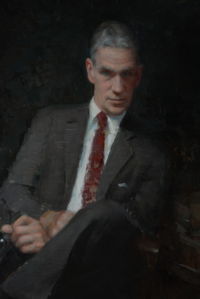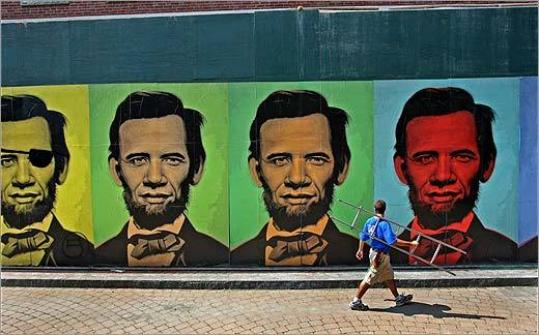Another Blow To Justice
By Jamie Gorelick
Tuesday, July 29, 2008; A17
Another stunning report has documented the bold and illegal influence of
politics at the Justice Department over the past eight years. For decades,
Republican and Democratic attorneys general had protected from political
influence the hiring of career prosecutors and administrative judges. There
was an unbroken rule, embodied in law, regulation and department policy,
that no political questions would be asked of those who wanted to serve in
career — as opposed to political — positions in the department. We
demanded of our Justice Department, in its core prosecutorial and
adjudicative functions, that it be separate from politics. Until the Bush
administration.
Last month, we learned that political functionaries deputized by Attorneys
General John Ashcroft and Alberto Gonzales had screened the best and the
brightest coming out of law schools, judicial clerkships and other positions
to weed out those who appeared to be Democrats or who might hold liberal
ideas; favor was shown to Republicans, members of the Federalist Society,
and those considered to be good and loyal conservatives. As the department’s
inspector general and its Office of Professional Responsibility noted, this
is illegal. It also breaks the promise of justice that is above politics and
undermines the department’s best values.
Now, an equally graphic report by the same two offices concludes that in
2003, the apolitical process for selecting immigration judges and
prosecutors was stood on its head. A chief aide to Attorney General Ashcroft
(and later to Attorney General Gonzales) “outlined a new process for hiring
[immigration judges] that listed the White House as the sole source for
generating candidates.”
Thus, immigration judges — who, by law, are to be chosen without regard to
their political pedigree — were no longer picked by the nonpolitical office
that is supposed to find and train the men and women who mete out justice to
tens of thousands of immigrants. In the interview files for these candidates
were such comments as “Cons[ervative] on ‘god, guns + gays’ ” — but not
much about whether they understood immigration law or had the capacity for
fairness.
Even more appalling, others, including a counsel to Attorney General
Gonzales, illegally selected individual line prosecutors — who wield
tremendous power over the reputations, liberty and livelihood of
Americans — using Internet searches on such keywords as “Bush, Gore,
Republican, Democrat, Clinton, spotted owl, abortion, gay, gun, and Florida
recount” to assess their political and policy views.
Why does this matter?
In a long career counseling individuals being investigated by the Justice
Department, I have had to explain to sometimes cynical citizens that
politics are prohibited from influencing such inquiries. My ability to give
that assurance has hinged on both the public perception — and reality —
that the career assistant U.S. attorneys, line prosecutors and lawyers who
work at the department are picked on their merits and proceed without regard
to politics.
Until now.
During the Bush administration, we have seen U.S. attorneys fired under
circumstances that have led many to conclude they paid the price because
they wouldn’t prosecute Democrats; honors program applicants screened for
their political leanings; and now the process of hiring line prosecutors and
immigration judges similarly politicized. How do we reassure the American
people that justice is being meted out fairly? Trust and respect lost are
hard to win back.
Worse, the reports lay out evidence that the political appointees behind
many of these missteps knew that what they were doing was wrong.
But responsibility does not end there. The department’s senior leadership
turned over hiring decisions to people with no history and no understanding
of the institution, people who came from the Republican National Committee
or White House political functions. The predictable result was that the
department would have, in essence, political appointees in career positions.
Thus was the department’s fundamental promise to the American people —
which had been respected for decades — broken.
Where were the career people on whom we count to keep the department honest?
The latest report concludes that the two most senior people responsible for
protecting immigration judges from political influence had “sufficient
evidence . . . to have realized that political or ideological affiliations
played a role” and that they should have spoken up to others who could do
something. The same criticism was leveled at those who ran the office
overseeing the honors program and lateral hiring. Where were they? It is
disappointing that they failed to act forcefully to protect the department
they served.
Attorney General Michael Mukasey, himself a former career prosecutor and
judge, pledges to fix these problems going forward. But more is required.
The department needs to hold individuals responsible for their actions. It
needs to offer opportunities to those who were improperly denied them. And
it needs to make sure that this never happens again. Restoring the promise
of unbiased justice will take the efforts of both this attorney general and
his successors.
The writer, a deputy attorney general in the Clinton administration, is a
partner at WilmerHale in Washington.



